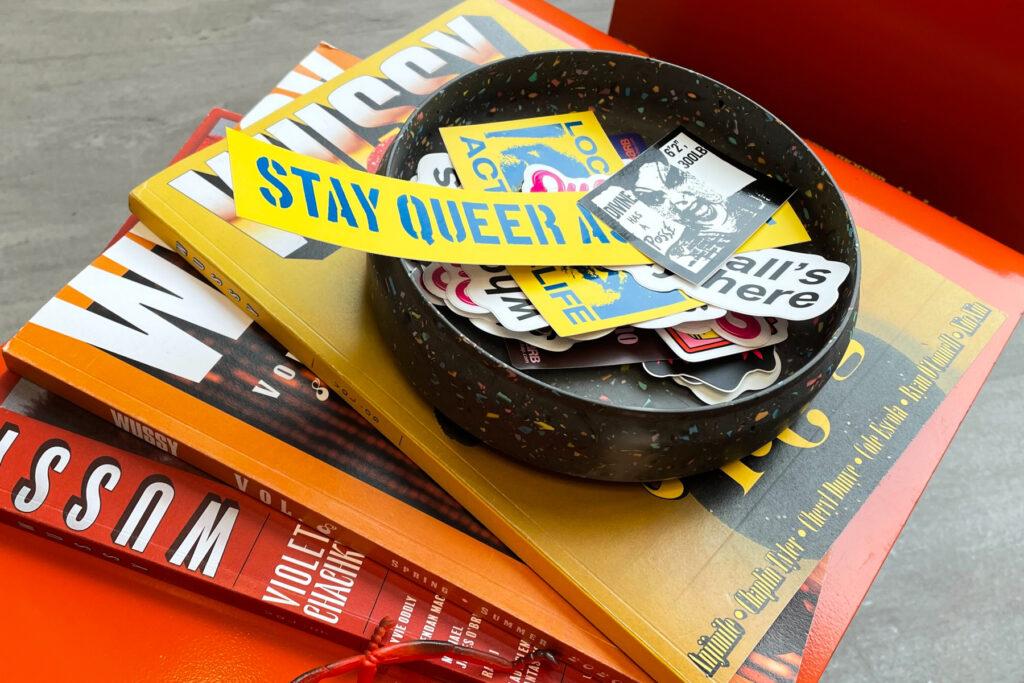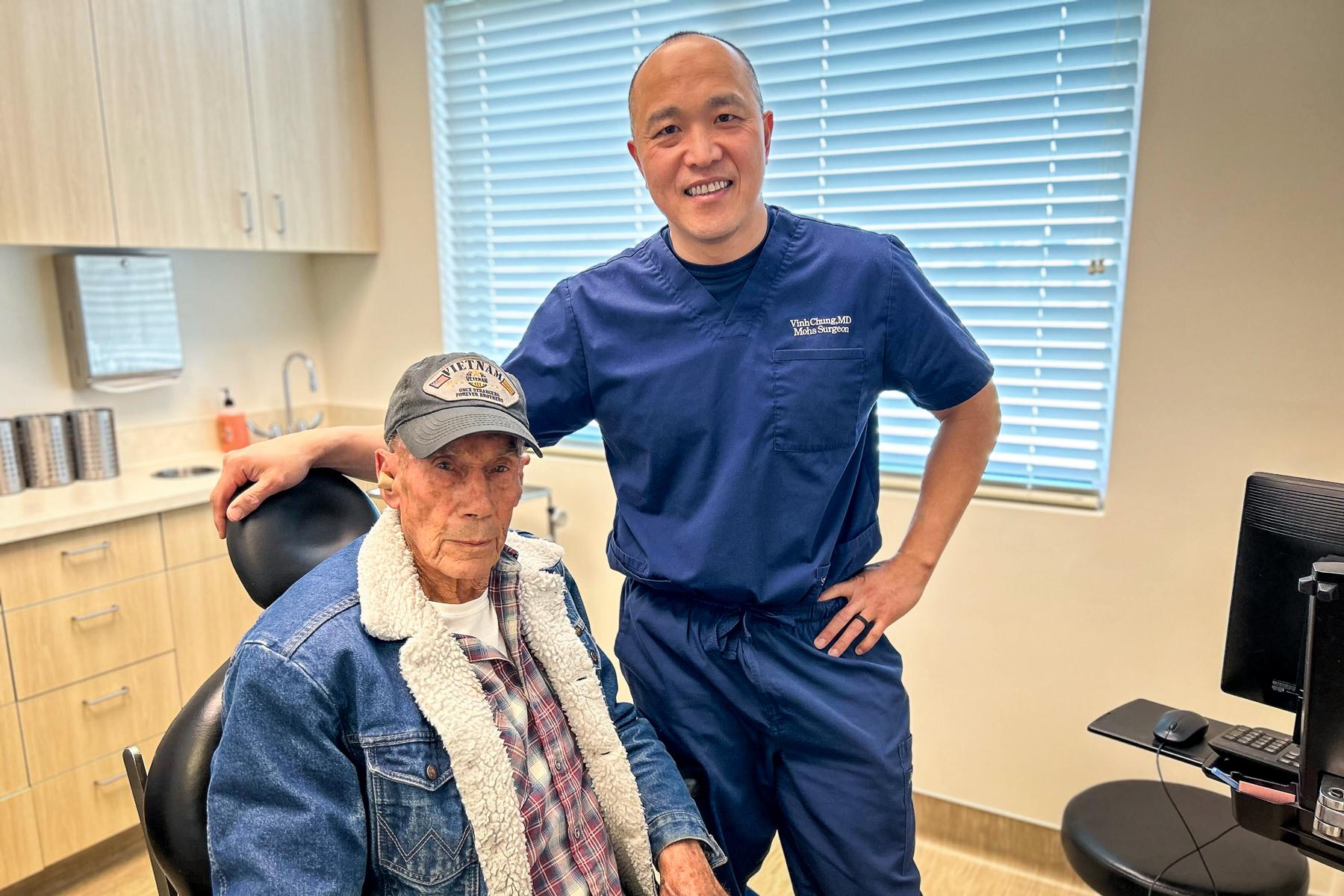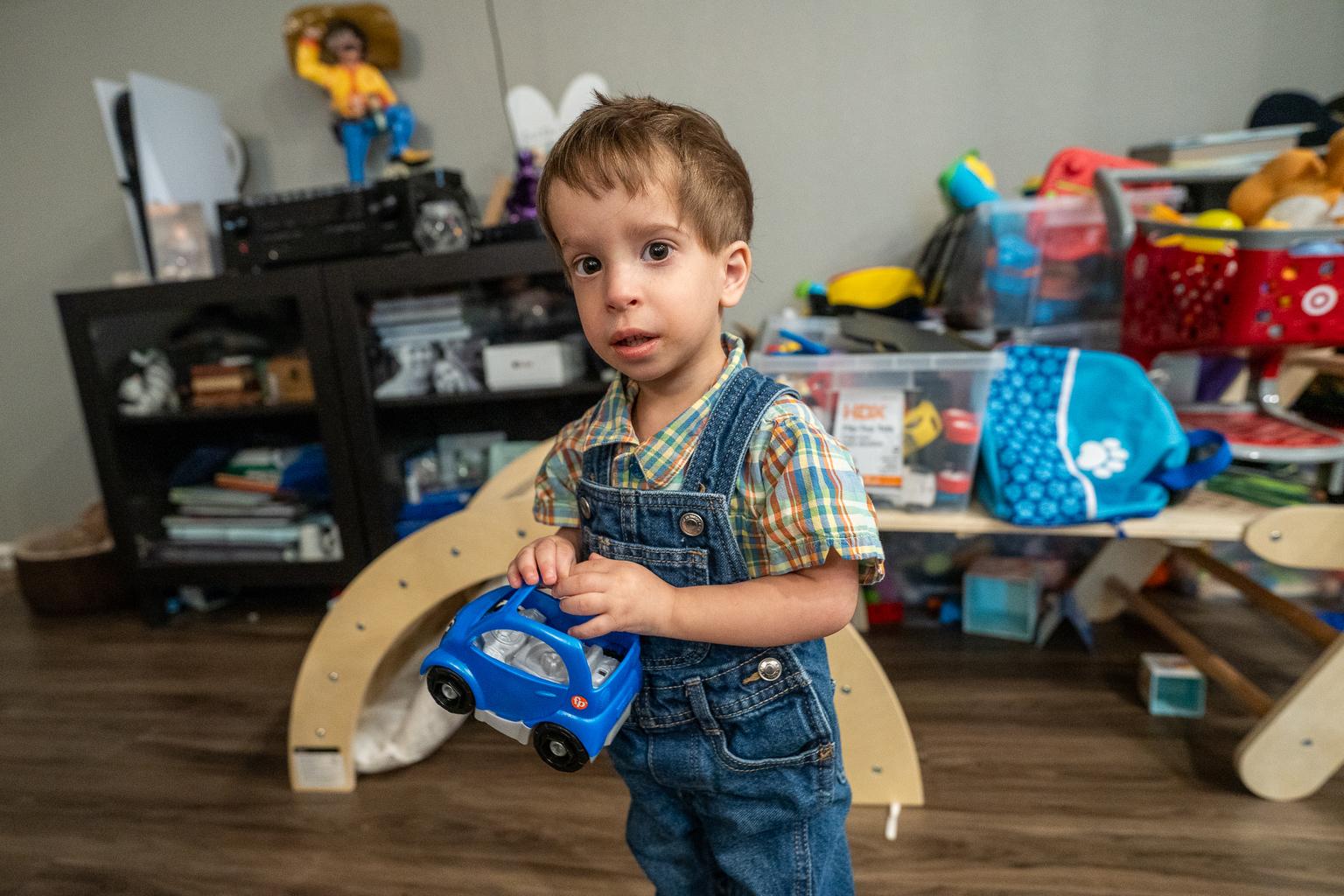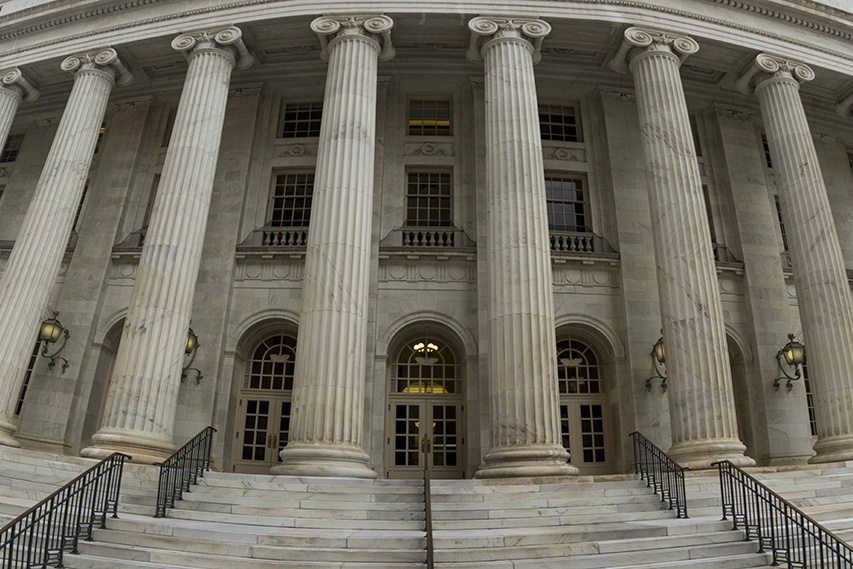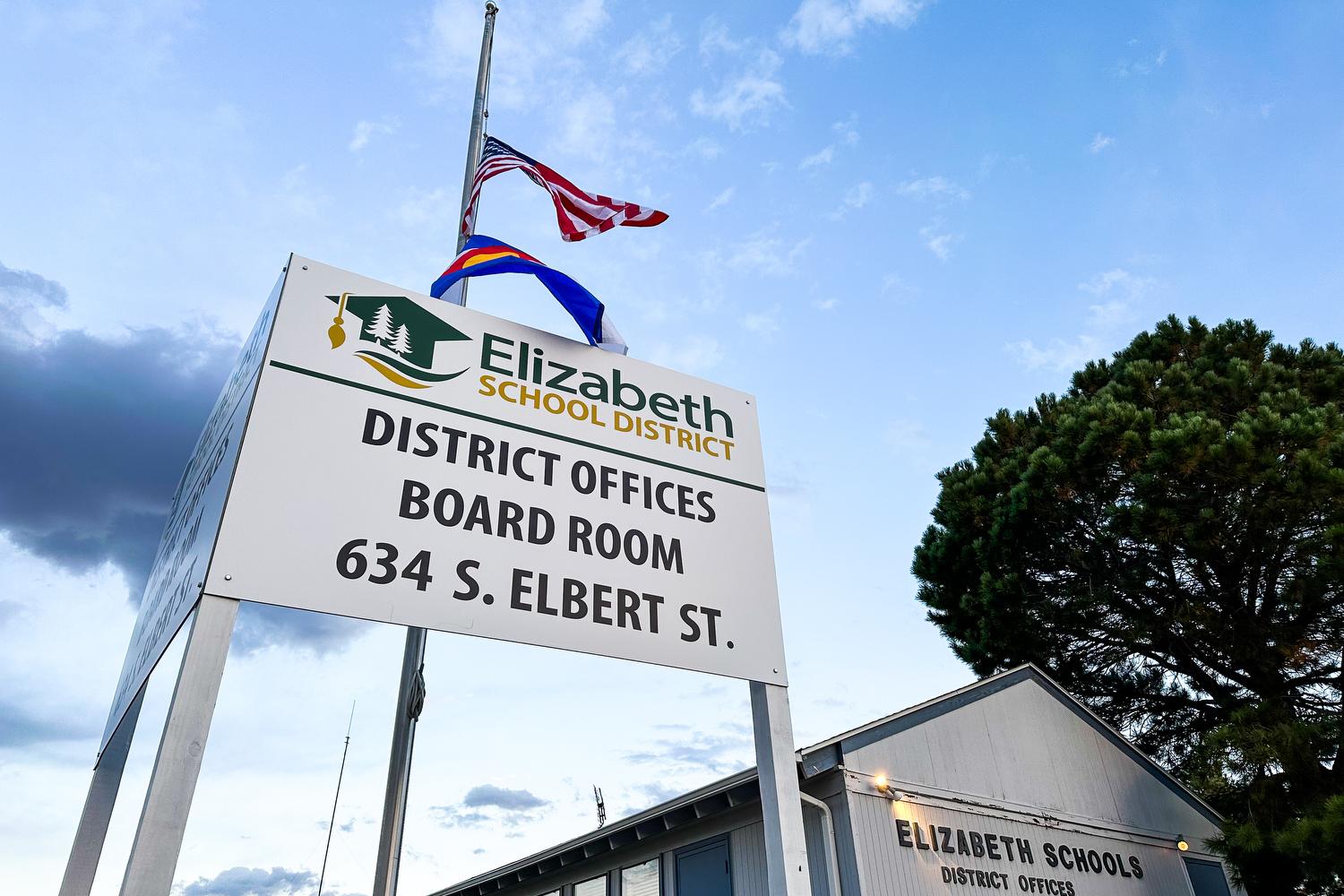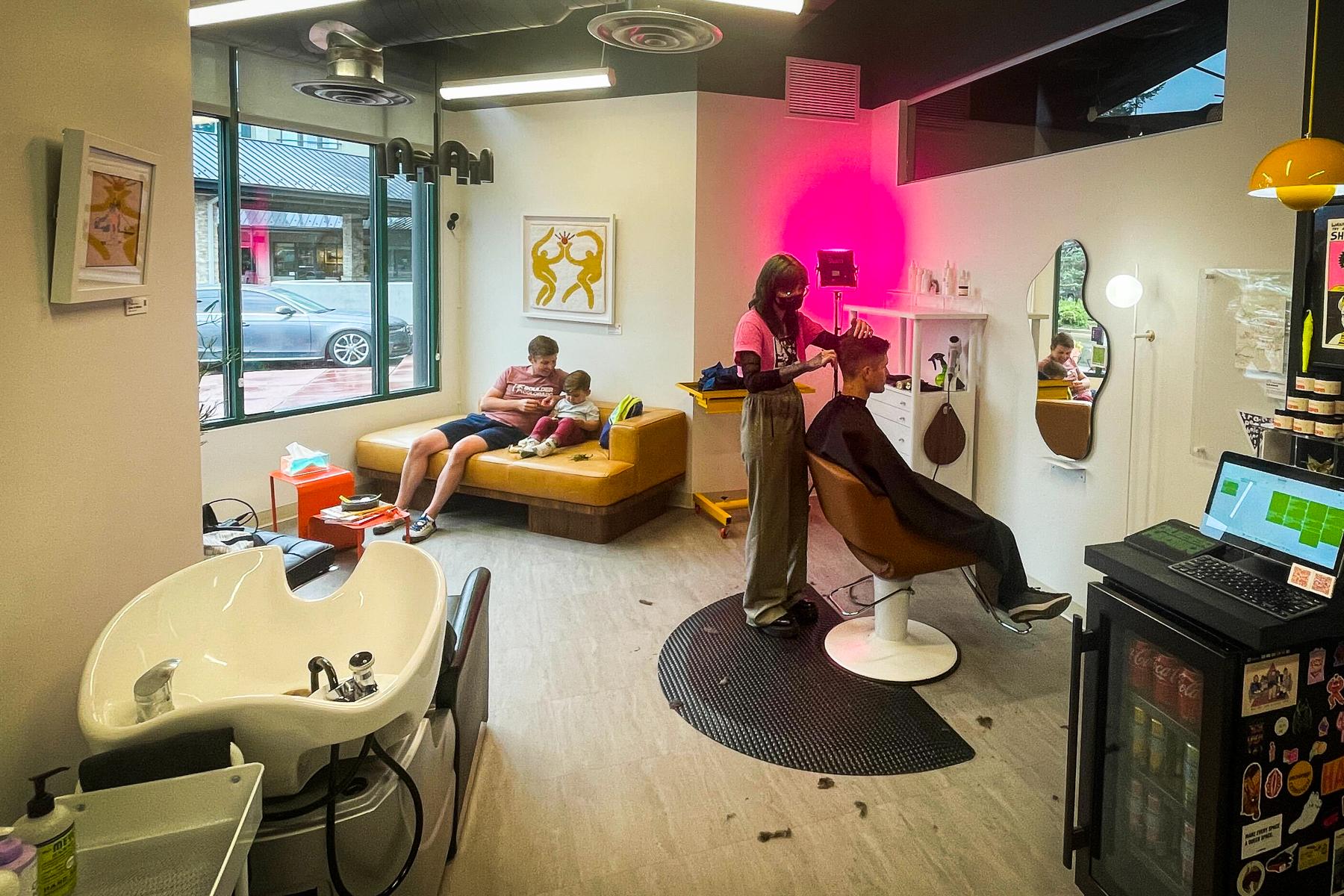
Inside a small bungalow just off the north end of Colorado State University in Fort Collins, Ezra Burns sits in the chair where she gives her clients haircuts. The chair stands out from the others in the room thanks to a luxurious fur throw draped over its back.
“My clientele ranges from older folks who are retired and just want something low maintenance to super trendy queer folks who wanna express themselves,” Burns said.
Burns began cutting hair professionally five years ago, but her interest was rooted in her experience exploring the punk scene as a 17-year-old.
“I had a mullet,” Burns said. “Most of my friends had skullets. We just looked crusty and punky.”
Some of those hairstyles are back. If you look at Burns’ instagram, you’ll see a lot of iconic haircuts from the 70s and 80s.
“So many of those iconic rock stars, musicians, poets, they had these looks and people kind of were either intrigued or offended by them, but they were definitely identified as a certain type of person,” she said. “I think shags, mullets and all those queer looks have almost reinvented themselves over time because people want to be seen as who they are, especially in these days.”
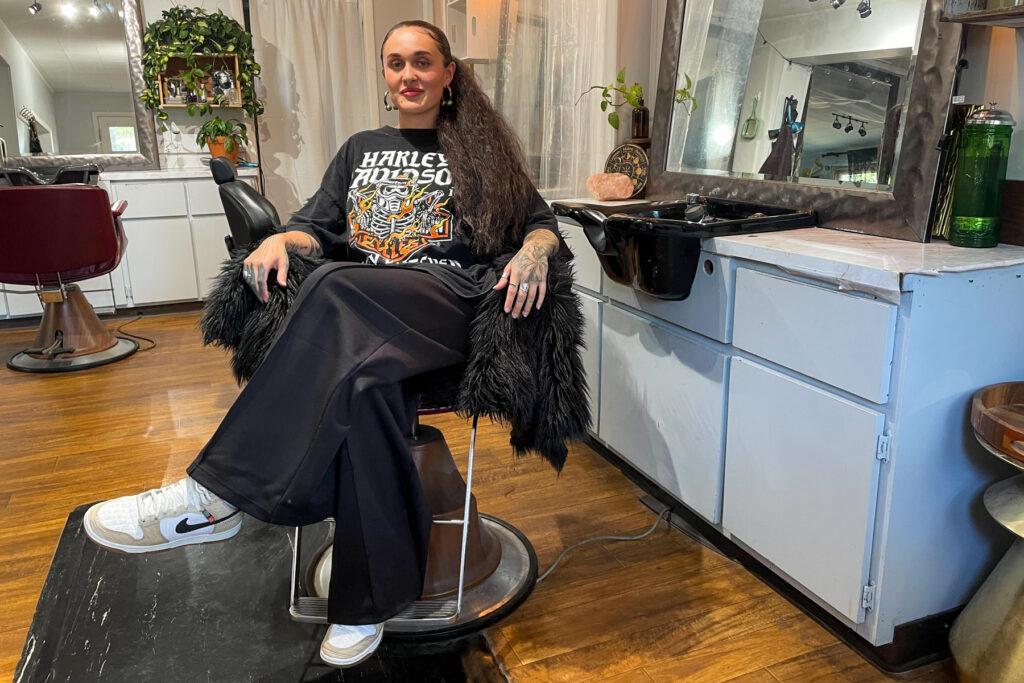
Queer hair studios are cropping up all across Colorado
Burns isn’t the only hair stylist in Colorado fostering a safe space for queer folks. Maeve Londono owns MAL Queer Hair Studio in Boulder with their partner, Mateo Londono. Both identify as queer.
When Maeve was a kid, they wanted a short, faded buzzcut, which many would consider to be a man’s haircut. Nobody would give it to them.
“[My stylists] were like, ‘Oh no, honey you don't want clippers on your head. We're gonna give you a nice soft, feminine haircut,’” they said.
It didn’t feel right, so they started cutting their own hair. That’s a common coming-of-age experience for non-gender-conforming kids. Now, Londono cuts hair for a living, hoping to help people in their community avoid the same bias they experienced from hair stylists.
After a stint cutting hair in a Florida neighborhood known for its LGBTQ+ community, Londono moved to Boulder. They were surprised the city, which is typically viewed as young and progressive, didn’t have a dedicated queer hair studio.
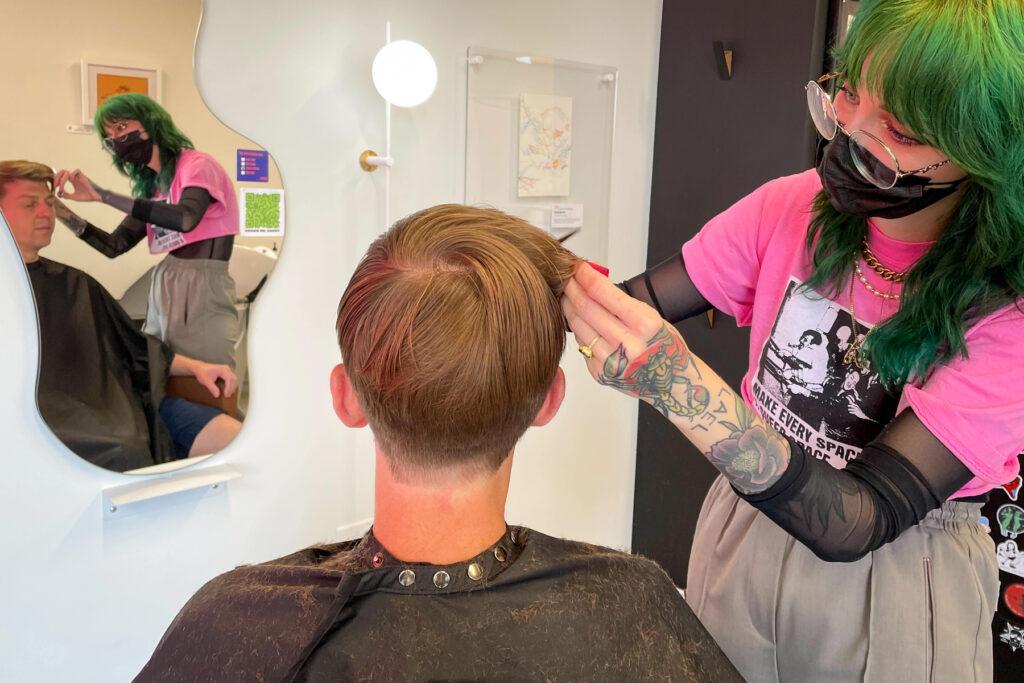
“I kind of realized that we needed a space where people could feel safe and comfortable to talk about how they want to present,” they said.
Londono’s clients pay particular attention to what sorts of people will be drawn to someone with their cut. A radical style can help prevent awkward misidentifications, especially on the dating scene.
“A lot of my clients honestly will say, 'Give me a haircut that'll make cis straight men not talk to me,’” they said. “They're looking to attract other folks in their community.”
Londono isn’t in the business of asking their clients what number they want and then chopping away. They have long consultations about what shape, length, texture, color, and density someone wants.
Those intentional conversations naturally bleed into personal identity more often than not, and that can create a more balanced relationship with clients. Ultimately, that’s the point of offering a safe haven to help people find themselves.
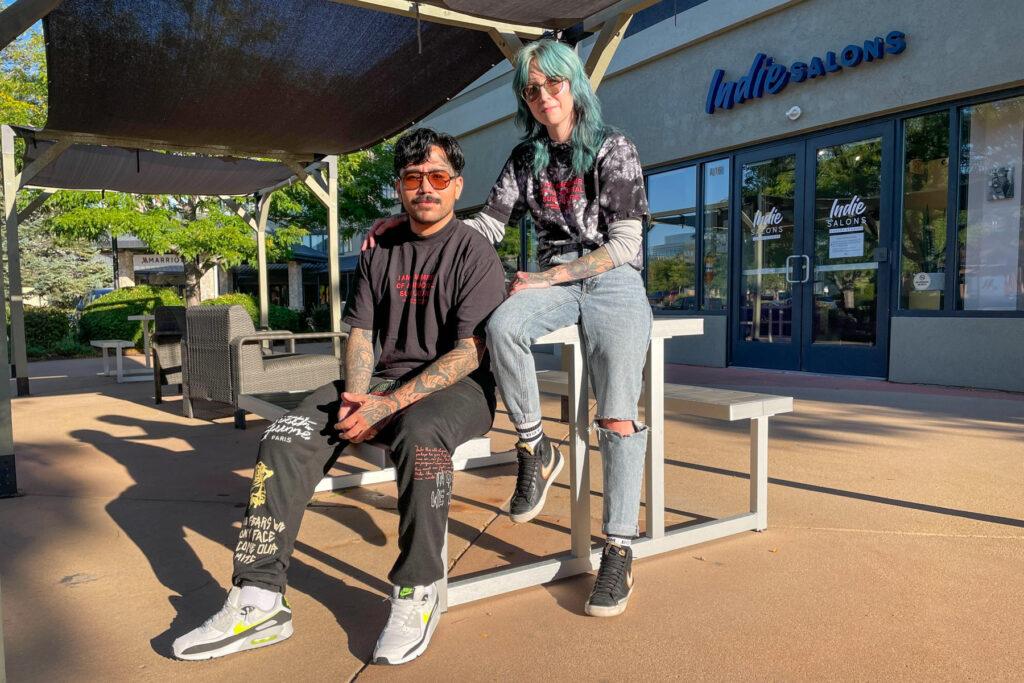
Different communities have different needs
Londono and their husband Mateo hope they can expand beyond haircuts and address hair problems specific to the queer people community.
Mateo, a trans man, dealt with hair loss after starting testosterone therapy, something many stylists haven’t experienced themselves. He began to wear a hair topper, which is like a small wig, after transitioning. The effect was immediate.
“I just feel more youthful, more energetic,” he said.
The experience helped inspire the couple’s goal to eventually offer a service focused on hormone-related hair loss. Those sorts of businesses are not common, especially in areas where trans people may not feel comfortable coming out publicly.
Many queer people of color face a similar lack of services focused on their specific needs. The queer hair studio scene is overwhelmingly white, and people like Rhonda Curley can struggle to find places that both know how to cut textured hair and create a safe space for queer expression.
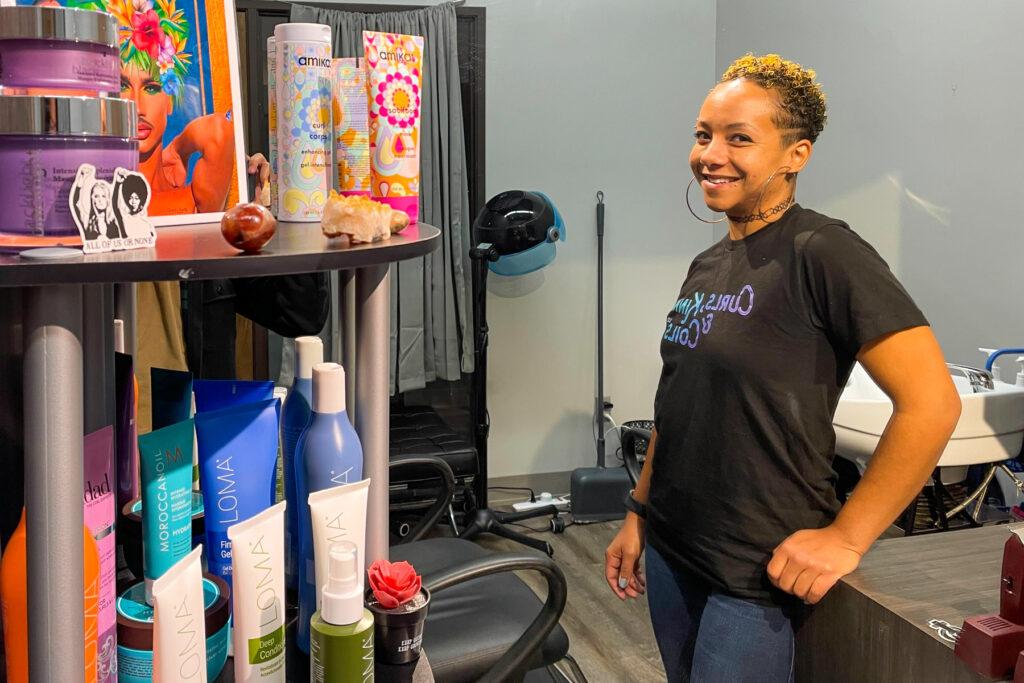
Curley recently opened Curls, Kinks and Coils, a hair studio on Denver’s 16th Street Mall. She hopes to serve people like her and teach her kids why that work matters.
“When [queer people of color are] confident, they just shine a little more and then they can just have an easier time in life, which being BIPOC and being queer, is already hard,” Curley said. “So like, let's just make it a little easier and make you at least feel like you look good.”
A bill prohibiting discrimination based on a person’s hair passed the state legislature in 2020. Still, Curley says many people of color hesitate to embrace their natural hair even though the law protects it. She says she used to share that mentality but learned to love herself.
“It is so freeing to get away from it and to start truly living your life and find that love for yourself because you can't love yourself when you're trying to be somebody else,” Curley said.
That self-love can come in all shapes and lengths, and for some folks, that means getting the crustiest, punkiest mullet money can buy.
